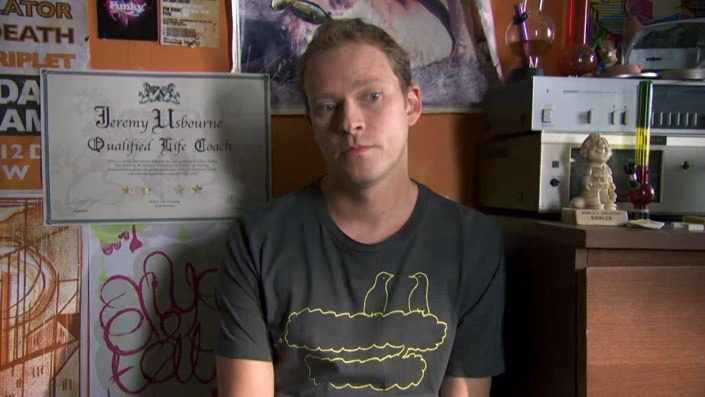Coaching is great….
Personally I love coaching. I like it so much the sometimes I have to tone down my enthusiasm for fear of scaring people off or making them wonder if I’ve joined a cult. I never actually intended to become a coach – I trained initially because I wanted to develop my leadership skills, and it was great for that. But I fell in love with the ethos and huge impact coaching can have for individuals, teams, organisations and society. And since then I have used the skills and ethos everyday in my life as a parent and through my work as a change consultant, facilitator/ trainer and a coach.
Coaching is radical and powerful
It empowers us to set our own direction, challenges us to take responsibility and dares us to ‘just do it’, rather than talk about it. It produces great results. And, it is based on values that I hold dearly: respect for one another, trust in one another’s potential and equality. I agree with Nancy Kline, coaching has the potential to improve most aspects of our society: schools, healthcare, politics, parenting. It’s better than sex or sliced bread. If you’ve not yet heard of Nancy Kline then you’re in for a treat – see my post about my favourite book about coaching.
So why do I sometimes refer to coaching as ‘the C Word’?
Because a lot of people seem to struggle with Coaching as a term and this can get in the way of people understanding what coaching offers and what it is.
For some ‘coaching’ has negative New Age, self-help connotations, especially the term ‘life coach’. Indeed, coaching is not regulated so anyone can call themselves a coach, as we over discover in one of my favourite episodes of Peep Show where perennial underachiever Jez gets himself a certificate and practises very bad (but very funny) coaching.
Coaching often gets confused with other ‘helping’ professions…
Others confuse coaching with counselling and assume it’s just for problems or attach stigma to seeking coaching (not that there should be any shame in seeking counselling – I’ve had it and so have most people I know at some stage!).
The other major confusion concerns the assumption that a coach is an expert who guides your development. Maybe that’s because for many of us our first encounter with the term is sports coaching. Many sports coaches are former professional athletes and they do advise on technique, so it’s not surprising this confusion arises. And, there are plenty of coaches who, like me, used to hold leadership positions so I think some people assume we’re going to dispense advice about ‘how to do it’ – but that would be mentoring, not coaching.
There is a huge overlap between performance coaching and sports coaching (especially sports psychology) and I’ve learned a huge amount from sports coaches about coaching. But the kind of coaching I’m talking about is ‘content-free’. As a coach it’s not my role to advise how to achieve your goals but rather to support you to figure that out for yourself.
So what is coaching then?
I like this definition from Sir John Whitmore, one of the founding figures of ‘performance’ coaching in the UK:
‘[Coaching is] unlocking a person’s potential to maximize their own performance.’
For me coaching is fundamentally a learning process. As a coach I help others learn how to achieve their goals and achieve their full potential. That often involves developing confidence, clarity, courage and commitment (so many other C words!).
Recently I made a short video to explain what coaching is and how it works. And in this I use the metaphor of going for a walk together in the hills. As the coach I go along to offer moral support and to help you learn to use your compass, but it’s your journey and you set the direction and pace of travel. Next time you want to make a journey, if I’ve done my job well, then you’ll have the confidence and skills to travel solo.
So who it for and when can it be helpful?
Sometimes we assume coaching is only for those in certain roles or positions but I think coaching can be helpful for anyone – at any stage of their career, and in any role. And very often people are not sure when coaching might be helpful – it might have been suggested by someone else, or maybe it’s last resort when they are feeling really stuck and don’t know what else to try…
So whilst not wishing to suggest there are the only four ways to use coaching, continuing on my hiking theme, I have tried to describe some very common scenarios as follows:
- New adventures – new job/role, returning to work after parental leave, redundancy, career change, new to management/ leadership? Coaching can offer you support to navigate changes at home and work.
- Feeling a bit lost or stuck? – feeling low motivation, wondering if you’re on the ‘right path’, stuck in a bog? Coaching can help get you back on track.
- Lonely at the top – if you are a CEO or senior leader, coaching can offer a ‘sounding board’ or ‘space to think’ outside your organisation.
- A head for heights – if you’re aiming high and wanting to achieve success (on your terms) then working with a coach can help you make decisive and rapid progress.
What else gets in the way?
Cost is a big one.
Increasingly employers will fund coaching, but in the arts and charities sector many of my clients are self-funding. And coaching isn’t cheap – for every 60 min coaching session, coaches need approximately 30 mins preparation/documentation. I ‘coach’ for 4-5 hours in a full working day to allow for this.
And the hourly rate also needs to cover a proportion of the annual professional operating costs of insurance; membership of the Association for Coaching; regular supervision; and around 40 hours CPD (including fees for courses and books etc). Then there’s all the non-coaching specific costs that any self-employed person needs to factor into their rates (equipment, pension, allowance for sickness and holidays, accountancy, software licenses, travel etc). And that’s not counting the initial training costs of becoming a coach in the first place, which I don’t factor into my prices but probably should.
So how do I try and get round that?
I try to be up-front about fees on my website, flexible about contract length and offering Pay What You Can for those on less than average income.
And conscious of cost I try and make sure a little coaching goes a long way by sharing tools with coachees so they can self-coach between and after sessions. Many of these tools are now freely available on my website too. Favourite tools I recommend to those wanting to coach themselves include:
Reflective questions – 8 simple coaching questions to ask yourself to generate feedback and learning
The Road Map – a visual thinking tool to imagine your goals and the road you want to take
ExACT goals – a key tool from performance coaching
Incisive questions – powerful questions that can unlock fresh thinking
It’s also the professional responsibility of any coach – not just the Yorkshire ones who are particularly mindful about value for money 😉 – to discourage dependency and develop the capacity to self-coach. And anyway, I just can’t help myself sharing self-coaching tips and tools because as I’ve already confessed, I’m a little bit obsessed with just how brilliant coaching is …
What do you think about coaching?
If anyone has any views or comments about coaching and how to better explain what it offers or tackle barriers to accessing it please get in touch – I would be extremely happy to hear your thoughts. Or if you’re interested in finding out whether coaching is for you juts get in touch for an no obligation 30 min chat.

